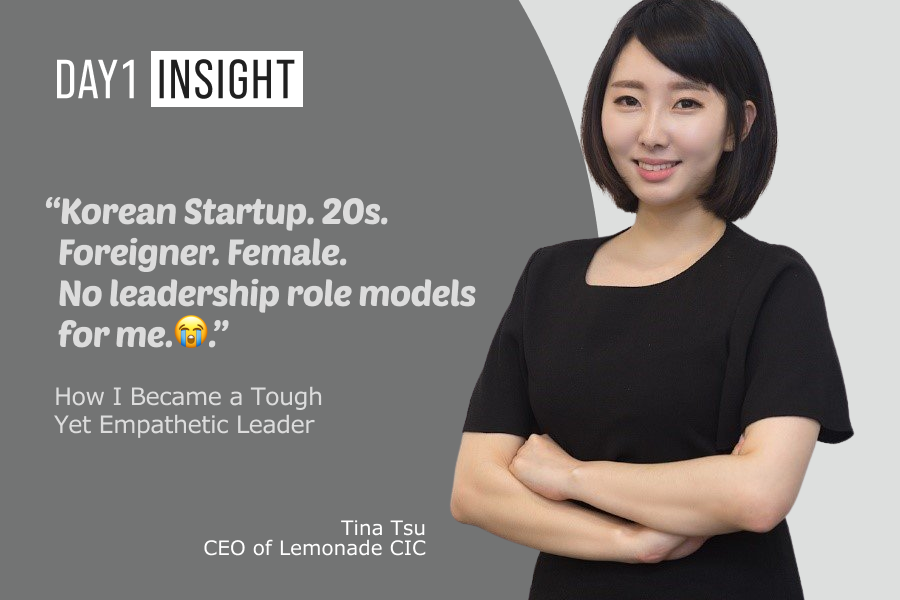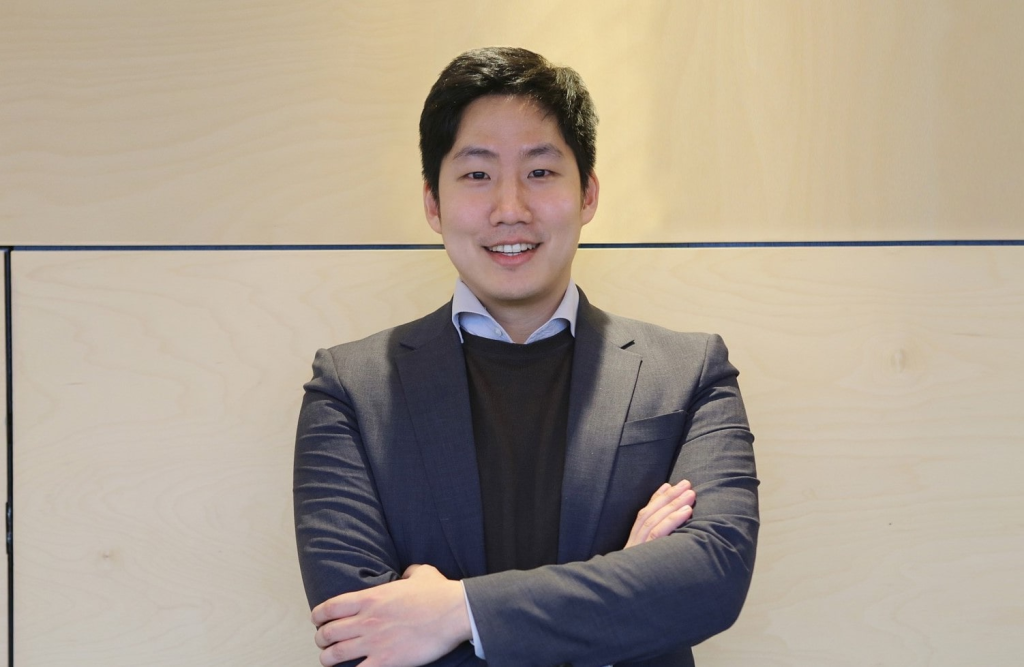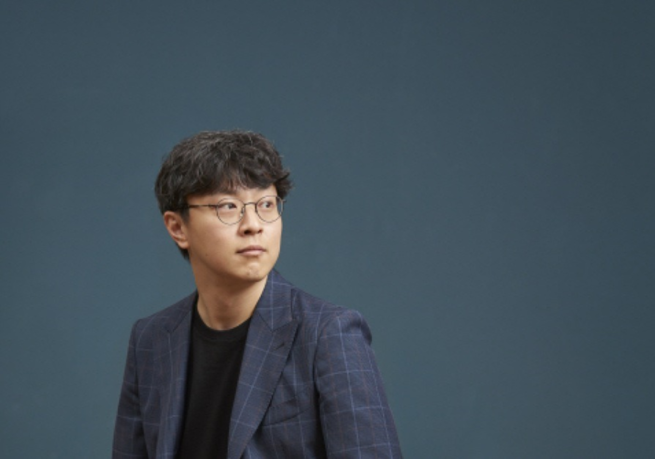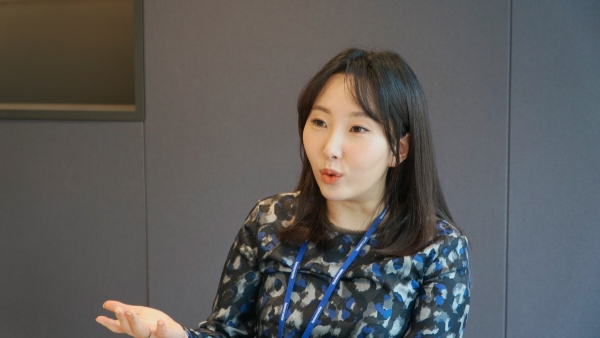From Dreaming of Quitting to Becoming the Boss

“When I was a freshman, one of my professors casually asked if I wanted to co-write a book with him. I was just a kid who thought I didn’t know anything, but he saw something—a spark—and offered me a hand. I want to be that kind of leader someday.”
Tina Tsu, CEO of Lemonade CIC
You’ve probably seen the headlines: “She learned Korean through her love for K-pop,” “She’s a multilingual wunderkind from a prestigious U.S. private school,” or “Foreign woman becomes a Korean executive in her 20s after starting as a junior.”
While these tidbits are technically true, they don’t scratch the surface of who Tina Tsu really is. They don’t tell you what kind of leader she is, what kind of company she runs, or what drives her as a businesswoman.
So, we sat down with Tina for a more in-depth chat. Who is Tina Tsu, the leader and entrepreneur? What’s her vision for Lemonade, and what is her dream?
Jump First, Figure it Out Later
From a young age, Tina was the kind of person who just had to do what she wanted. And if it was something everyone else was doing? Well, if it didn’t interest her, she simply said no. She preferred action over contemplation—she’d jump into something and figure it out as she went.
That’s how she landed in Korea. She got herself a travel visa and hopped on a plane to Seoul. Why? Because she wanted to work here. Simple as that. One day, she spotted a startup hiring on Facebook. The job posting link took her to what could only be described as a love letter written in Google Docs—an intro-cum-recruitment note from Kang Min Lee, CEO of Day1 Company (formerly Fast Campus). It was quirky, creative, and definitely caught her attention. She aced the interview, and instead of “start tomorrow,” they said, “start now.” And that’s how her career—and the wild ride—began.

In elementary school, Tina had enrolled herself in a “Saturday Korean School” for second-gen Korean kids, where she quickly learned what “tough love” meant. Fast forward to the business world, and her Korean skills weren’t quite boardroom-ready, but that didn’t matter—Korean startups are a pressure cooker for everyone, regardless of language, race, or nationality. Tina had left Canada’s slow-paced, comfortable life for Seoul’s frenetic energy. She’d found her perfect match.
“To be honest, I was this close to quitting every day. I thought, ‘Just one year—get through this for one year, and then you can go.’ (laughs)”
Right after joining, she was put in charge of the foreign language education business, handling everything solo. Accounting? Check. Admin? Sure. When things went south and there was a risk of having to refund 150 students their prepaid fees, she had no one to call. She just had to figure it out.
From Ready to Quit to CEO
At one point, Tina seriously considered quitting. But she wanted to leave on a high note—she hadn’t hit that one success yet. She figured when she hit 100 million won in sales, she’d be done. But when she got there, it didn’t feel all that grand. So she set a new target—300 million, then 1 billion, then 5 billion. Her competitive streak was heating up, and Chairman Park Ji-woong knew exactly how to keep it going.
“He’s not the type to throw compliments around. I thought that once he fully recognized me, I could finally leave. For example, after I hit 30 billion in sales, he said, ‘That’s nothing special. Plenty of people do that. Come back to me when you’ve hit 100 billion.’ So from that moment, all I could think about was how to hit 100 billion.”

Every time she hit a goal, Park moved the finish line further away. Tina would sometimes wonder, “What’s the actual target here?” But she also knew it was because he believed she could keep going. And she did.
Her drive to “earn respect, then leave” turned into a series of wins, as she launched one successful language education brand after another. By the time her one-year mark came around, Tina was still there, and four years later, she was the CEO of Lemonade CIC.
A Tough-Loving Idealist
Despite spending her school years abroad, Tina had never taken on a leadership role until she started working in Korea. She found herself in charge, but with no real role models to look up to, she was navigating uncharted waters. She also noticed the societal expectations for women in Korea often clashed with the qualities expected of a leader. Finding her ideal balance as a leader became a significant challenge.
“Looking back, I realized the teachers who pushed me the hardest and made my life difficult were the ones who actually cared the most. After I graduated, I saw how much they’d helped me grow, not just academically but as a person. It’s the same with Chairman Park—he was tough on me, but he’s the one who helped me grow the most.”
Tina learned that tough times lead to the sweetest victories. When she became a leader herself, she applied that lesson, but striking the right balance wasn’t easy. Her hard-nosed leadership style once led to a group meeting where, by the end, everyone on her team was in tears.

“They told me my tone was too harsh, my directions too strict, my KPIs too high, and that I didn’t give enough praise. It was a huge wake-up call for me and a chance to really reflect on my approach.”
In the end, it turned out to be a happy story. She still keeps in touch with those tearful team members, even after they left the company. They’ve told her that the period under her leadership was when they grew the most. For Tina, it was a pivotal moment in refining her leadership style. She’s since learned to express herself differently and now focuses on praising and motivating her team more often.
“I didn’t know I was supposed to ask my team if they’d eaten lunch. I had to learn that from books and practice it. But one thing I still believe in: junior team members often focus on their weaknesses, trying to fill in the gaps, and that just stresses them out. I believe there’s no limit to growth if you keep honing your strengths. So I focus on pulling out their potential by constantly praising what they’re good at. I want everyone to believe in their possibilities because I’m sure they’ll always grow if they keep imagining their potential.”
Tina’s dream as a leader is for all her team members to succeed. She calls it “selfish idealism.” If everyone does well, it reflects on her as their leader. She believes that once everyone achieves their goals, even the tough times will become happy memories, and the bond between them will be as strong as family. She often jokes with her team, “Let’s work hard, and before we’re 40, let’s all buy Porsches and start our own club!”
The Path Forward for Lemonade

Why do some people keep moving forward and succeed while others give up so easily? Can’t everyone live a life where they constantly push past their limits? Tina’s vision as a business leader is tightly intertwined with her leadership philosophy. She looked to the founding members of her company for the answer to why they’ve stuck around for so long.
“People who’ve experienced even small successes know that no matter how tough things get, the reward at the end is worth it. You don’t become fluent in a language after studying for a week, nor does your life change overnight. But if you’ve built a habit of daily wins, that endorphin rush spreads into every part of your life. Over time, those small wins build into a steep growth curve.”
This belief in the power of small wins is why Tina thinks adult education is so important. She and her team created educational products designed to deliver these moments of achievement. Lemonade doesn’t measure success by how many students master a foreign language. Instead, it’s about getting customers to start learning and experience the daily satisfaction that leads to fulfillment in other areas of life.
“I think the values I want to spread align perfectly with what an education company does. Inside the company, I want to see team members grow, become leaders, and then help younger employees grow. In the business, I want our products to help customers grow. As the company grows, I want to create a virtuous cycle where we deliver the value of personal growth to more and more people.”
✍️Key Takeaways
- Leadership that recognizes and builds on team members’ strengths is key to driving growth.
- Balance past experiences with the current situation to find the right leadership style for your team.
- Don’t set limits on yourself—those small wins will add up, and one day you’ll realize just how much you’ve grown.